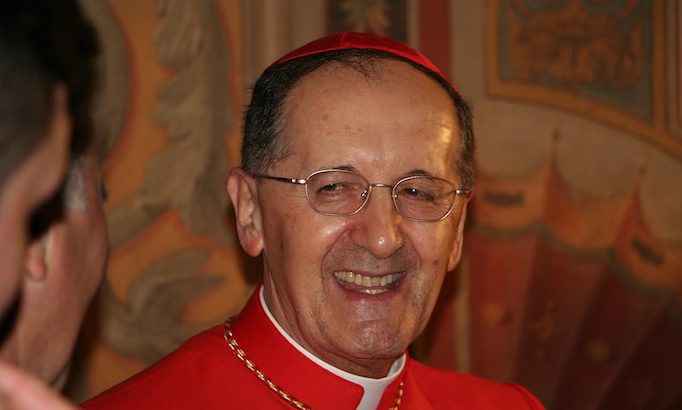Pope to institute formal ‘ministry of catechist’
While millions of laypeople around the world are recognised as catechists in their parish or diocese, Pope Francis is preparing to formally institute the “ministry of catechist”.
The Vatican press office said May 5 that Pope Francis’ apostolic letter Antiquum Ministerium (“Ancient Ministry”), instituting the ministry, would be released May 11.
Pope Francis often has spoken of the importance of selecting, training and supporting catechists, who are called to lead people to a deeper relationship with Jesus, prepare them to receive the sacraments and educate them in the teachings of the Church.
In many parts of the world, especially in communities without a resident priest, catechists are the leaders of the local Catholic community, evangelising, convoking and guiding their fellow Catholics in prayer and works of charity.
And, in missionary territories under the guidance of the Congregation for the Evangelisation of Peoples, they already serve with a specific mandate from their bishop.
The congregation’s 1997 Guide for Catechists described catechists as “’lay members of Christ’s Faithful who have received proper formation and are outstanding in their living of the Christian life.’”
‘Front-line’ priests should have priority access to vaccine
Priests who are ministering “on the front lines” in parishes, prisons and hospitals should be considered “at-risk” and receive priority in Covid-19 vaccination programs, said the head of the Vatican Congregation for Clergy.
Ongoing cooperation is needed between government and Church leaders “aimed at enabling clergy – at least those ‘in the care of souls’ – to exercise their ministry, something that could be done today by facilitating vaccine administration,” said Cardinal Beniamino Stella, prefect of the Congregation for Clergy.
In an interview with the Italian Catholic agency SIR May 4, the cardinal recalled the 269 diocesan priests in Italy who died of Covid-19 during just the first year of the pandemic.
Many priests “succumbed to the virus while generously devoting themselves to ensuring that the people of God felt the closeness of their shepherds and that they received the comfort of the sacraments and the proclamation of the Word of God,” he said.
The relevant civil and ecclesiastical authorities should consider recognising the important “social service” offered by priests by ensuring their access to vaccines, the cardinal reflected.
Pope Francis: Migrants bearing brunt of ‘aggressive’ nationalism
Pope Francis said last Thursday that “aggressive forms of nationalism and radical individualism”, exposed during the pandemic, are having a severe impact on migrants worldwide.
In his message for the World Day of Migrants and Refugees, issued May 6, he said that the coronavirus crisis had highlighted the deep divisions between human beings.
“Our ‘we,’ both in the wider world and within the Church, is crumbling and cracking due to myopic and aggressive forms of nationalism and radical individualism,” he said.
“And the highest price is being paid by those who most easily become viewed as others: foreigners, migrants, the marginalised, those living on the existential peripheries.”
The World Day of Migrants and Refugees, instituted in 1914 by Pope Pius X, is celebrated annually on the last Sunday in September. This year it falls on September 26.
In his message for the day’s 107th commemoration, entitled “Towards an ever wider ‘we’,” Pope Francis addressed what he called a “twofold appeal,” to Catholics and the wider world, to embrace those on the margins.
He urged Catholics “to make the Church become ever more inclusive.”


 Cardinal Beniamino Stella
Cardinal Beniamino Stella 